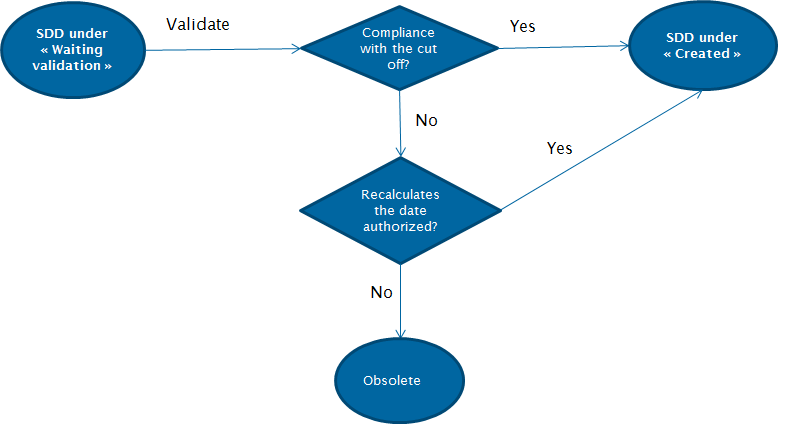The creation or the modification of a debit may require approval from a third party user before becoming effective. This control mechanism, called double validation or “validation with two pairs of eyes” can be configured by debit creation or modification channel.
When activated, the debits created or modified bear a “Pending validation” status. In order to continue their lifecycle, they must be validated by an authorised user other than the user that affected the original transaction. Validation may be carried out individually or in batches via the SDD search screen.

Figure 24 Validate SDD depends on due date
When the creditor validates the SDD, SPS checks the due date:
If the due date is valid, SPS asks only for a confirmation. The SDD status is “Created”.
If the due date is not valid and the parameter “Direct Debit Due date overruling” is activated for the corresponding sequence type, SPS set the next valid due date, the SDD status is “Created”.
If the due date is not valid and the parameter “Direct Debit Due date overruling” is not activated , the creditor has to choose to:
-
Valid the SDD with the actual due date. The SDD status is “obsolete”;
-
Valid the SDD with the next valid due date. SPS set the next valid due date, the SDD status is “Created”.
-
Valid the SDD with a new due date determined by the creditor. If the due date is valid, SDD is “Created”, otherwise “Obsolete”. SDD’s due date is updated with the new due date.
Debits pending validation may also be cancelled by an authorised user (see SDD cancellation or reversal request ).